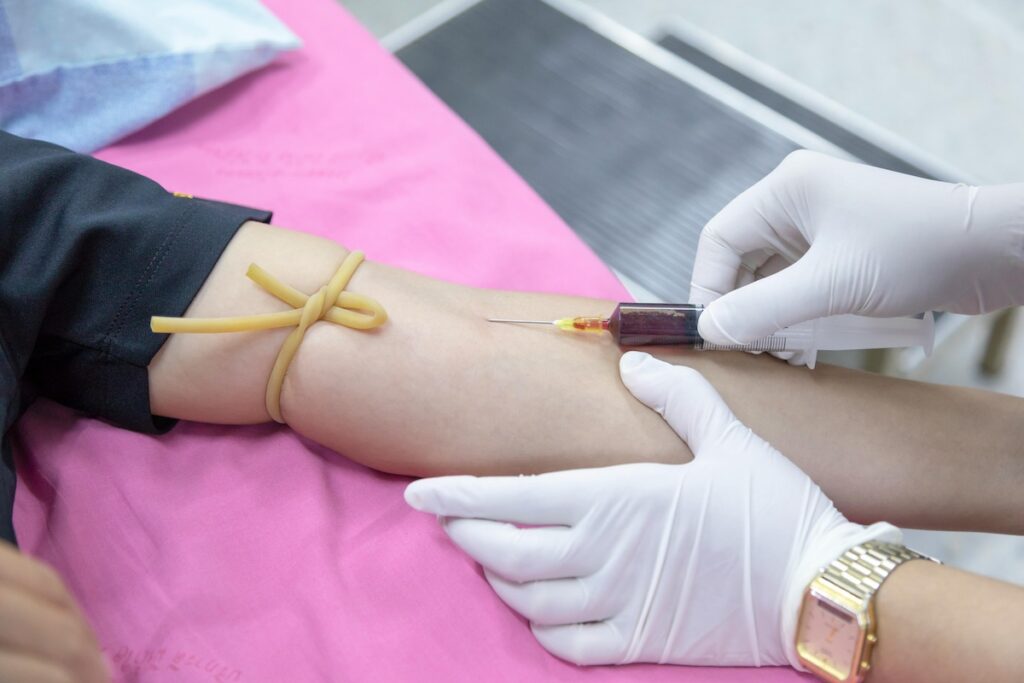🧭 Introduction: Why Every Foreigner Needs an ARC in Korea
If you plan to stay in South Korea for more than 90 days, one of the first legal steps you must complete is obtaining an Alien Registration Card (ARC) — also known as 외국인등록증 (Oegugin Deunglogjeung).
This card is more than just an ID. It’s your key to everyday life in Korea.
You’ll need it to open a bank account, get a mobile phone plan, sign a housing lease, or even register for healthcare.
In short:
Without an ARC, your life in Korea is half locked.
In this guide, you’ll learn everything — from how to apply, where to go, how long it takes, and how to renew or replace your card if you lose it.
🏛️ What Is the Alien Registration Card (ARC)?
The Alien Registration Card is an official identification card issued by the Korea Immigration Service (KIS) under the Ministry of Justice.
It contains essential information such as:
- Your name
- Nationality
- Date of birth
- Visa type and number
- Address in Korea
- ARC number (a 13-digit ID similar to a Korean’s resident number)
- Expiry date
You’ll receive a plastic ID card (credit-card sized) that legally proves your residency in Korea.
📅 Who Needs an ARC?
You must apply for an ARC if:
- You plan to stay in Korea for more than 90 days.
- You hold a long-term visa, such as:
- D (Student, Research, or Cultural Exchange)
- E (Employment or Teaching Visa)
- F (Permanent/Marriage Visa)
- H (Working Holiday Visa)
You do not need an ARC if you are:
- A tourist or short-term visitor staying less than 90 days (visa waiver)
- A diplomat or government official with specific visa exemptions
🗓️ When to Apply for Your ARC
You must apply within 90 days of arriving in Korea.
Failing to do so may result in fines of ₩100,000–₩1,000,000 depending on how long the delay lasts.
Even if you’re waiting for your school or employer to help, it’s ultimately your responsibility.
🏢 Where to Apply: Immigration Office Locations
Applications must be submitted in person at your local Korea Immigration Office.
Your location depends on your registered address:
| City / Area | Main Immigration Office |
|---|---|
| Seoul (North) | Seoul Immigration Office (Mok-dong) |
| Seoul (South) | Seoul Southern Office (Yangcheon) |
| Incheon | Incheon Immigration Office |
| Busan | Busan Immigration Office |
| Daegu | Daegu Immigration Office |
| Daejeon | Daejeon Immigration Office |
| Jeju | Jeju Immigration Office |
👉 Tip:
If you’re unsure which office covers your area, visit the official HiKorea website → “Find Office by Address.”
💡 Step-by-Step: How to Apply for Your ARC in 2025
Step 1️⃣: Book an Appointment
Go to www.hikorea.go.kr → Click “Reserve Visit” → Select your local immigration office.
Appointments are usually required; walk-ins are rare in large cities.
Step 2️⃣: Prepare Documents
Here’s what you’ll need:
| Document | Description |
|---|---|
| Passport | Must be valid throughout your stay |
| Visa printout | From your embassy or immigration portal |
| ARC Application Form | Available at office or online |
| Color Photo (3.5×4.5cm) | Passport-style, white background |
| Application Fee | ₩30,000 (in cash or card) |
| Residence Contract | Housing lease or dorm confirmation |
| School/Employer Letter | Proof of enrollment or employment (depending on visa type) |
| Health Insurance | Proof of NHI enrollment (if applicable) |
✅ Pro Tip:
Make 2–3 photocopies of everything before your appointment — Korean immigration offices often request duplicates.
Step 3️⃣: Visit the Immigration Office
Arrive 10–15 minutes early.
Take your queue ticket, submit your documents, and pay the fee at the counter.
The officer may ask simple questions in English or Korean, such as:
- “What is your visa type?”
- “Where are you staying in Korea?”
- “Are you studying or working?”
The process usually takes 15–30 minutes.
Step 4️⃣: Wait for Card Issuance
Processing time: 2–4 weeks (depending on region).
You’ll receive a pickup slip with an expected collection date.
You can either:
- Pick up your ARC in person at the same office
- Or choose mailing service (for ₩4,000–₩5,000 extra)
🏠 How to Use Your ARC After Receiving It
Once you receive your ARC, you can:
- Open a Korean bank account (most banks require ARC for foreigners)
- Register for mobile phone and internet services
- Apply for National Health Insurance (NHI)
- Sign housing contracts
- Verify identity for online services like Naver or Kakao
- Travel domestically without carrying your passport
Essentially, your ARC becomes your primary ID in Korea.
🔁 Renewal and Extension
Your ARC is valid for the same duration as your visa.
When extending your visa, you must renew your ARC at the same time.
Renewal Steps:
- Apply for visa extension (through HiKorea or in person).
- Bring ARC, passport, updated documents, and ₩30,000 fee.
- Request a new validity sticker or replacement card if needed.
Failing to renew on time can lead to overstay penalties or visa cancellation.
⚠️ Lost or Damaged ARC
If your ARC is lost or stolen, you must report it within 14 days at your immigration office or local police station.
Replacement process:
- Bring your passport and 1 photo.
- Pay the ₩30,000 reissue fee.
- File a Lost Report (분실신고) if applicable.
- New card issued in 2–3 weeks.
🧍 ARC for Students (D-2 Visa)
If you’re an international student, your school will usually help you prepare documents.
You’ll need:
- Certificate of Enrollment (재학증명서)
- Dormitory contract or housing lease
- Proof of tuition payment (optional but useful)
🧩 Tip: Keep your ARC updated if you change address, school, or visa status — within 14 days of the change.
👔 ARC for Employees (E-Visa Holders)
For E-2 (English teachers), E-7 (professionals), or D-8 (corporate investors), you’ll need:
- Employment contract
- Business registration certificate of employer
- Proof of address (lease, etc.)
- Recent photo and passport
When changing jobs, you must visit immigration to update employer details — this is legally required.
💍 ARC for F-Visa Holders (Marriage, Permanent Residency)
If you are married to a Korean citizen (F-6 visa) or hold permanent residency (F-5), your ARC serves as your long-term residence card.
Renewal intervals:
- F-6 Marriage: every 2–3 years
- F-5 Permanent: every 10 years
Benefits:
- Multiple entry allowed
- Access to Korean National Health Insurance
- Easier employment or business setup
🌐 Online Services via HiKorea
Once you have your ARC number, register an account on HiKorea.
You can then:
- Book appointments
- Apply for visa extension
- Change address
- Download official certificates
It’s available in English, Chinese, and Korean.
💬 Common Questions (FAQ)
Q1: How long does it take to get an ARC in Korea?
👉 Usually 2–4 weeks after submission.
Q2: Can I work before I get my ARC?
👉 No. You must wait until the ARC is issued and registered under your visa type.
Q3: Can I travel abroad before receiving my ARC?
👉 Not recommended. Leaving before you get your ARC may cause re-entry issues unless you have a Multiple Re-Entry Permit.
Q4: What if I move to a new apartment?
👉 You must update your address within 14 days at the immigration office or local 구청.
Q5: Is the ARC the same as a Residence Card (RC)?
👉 Yes, the term ARC and Residence Card are often used interchangeably.
💡 Pro Tips for New Foreign Residents
- Always carry your ARC (or a copy) when traveling within Korea.
- Keep digital photos of your ARC and passport for backup.
- Immigration offices close for lunch (12–1 PM) — plan accordingly.
- Check HiKorea during renewal periods; appointment slots fill quickly.
- If unsure, call the 1345 Immigration Hotline (available in English, Chinese, Vietnamese, Tagalog, and more).
🧾 Useful Contacts & Links
- Korea Immigration Service (KIS): www.immigration.go.kr
- HiKorea Portal: www.hikorea.go.kr
- Immigration Hotline: ☎️ 1345 (from any Korean phone)
- Lost Card Reporting: Visit local police or immigration within 14 days
🌍 Final Thoughts
Getting your Alien Registration Card (ARC) is a major milestone in settling down in Korea.
It opens doors — literally and figuratively — to your new life here.
From banking and housing to travel and healthcare, this card is your official identity as a foreign resident.
While the process might seem complicated at first, following this guide step-by-step ensures you’ll get your ARC smoothly and start enjoying everything Korea has to offer.





